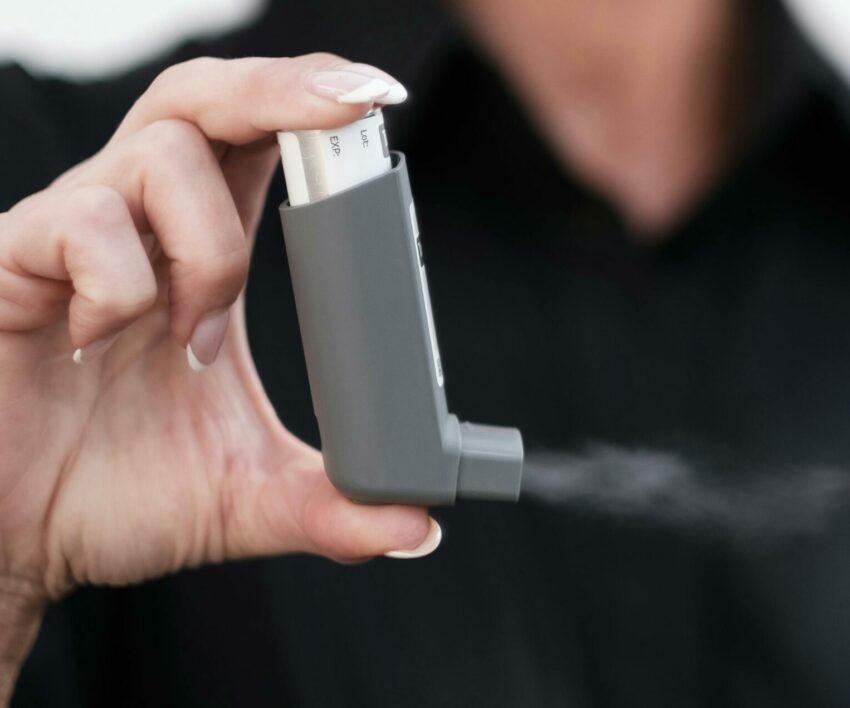
inhaler: picture: pexels
If the crisp autumn air has you reaching for your inhaler more than usual, you’re not imagining things. As the leaves change, so do the triggers that can set off asthma symptoms—think swirling pollen, mold hiding in damp corners, and that first blast of dry heater air after months of no use.
Even the cosy scent of wood smoke in the air can be a hidden culprit. While autumn brings beautiful scenery and sweater weather, for asthma sufferers, it can also mean extra sniffles, wheezes, and breathless moments.
The Chacko Allergy, Ashtma and Sinus Centre states that allergic asthma is a common condition triggered by allergens, such as ragweed pollen, mold, and dry air. It is explained that ragweed pollen causes allergic rhinitis symptoms, making breathing difficult. Mold, is said to be a common allergen in summer and autum, and can cause severe asthma attacks due to mold sensitisation.
“After the summer months have passed, fall tends to bring in cooler, drier air. Sadly, for those with allergic asthma, these conditions often signal worsening breathing difficulties. Dry air irritates a sensitive respiratory system, potentially leading to asthma attacks,” claim the above source.
To mitigate allergens, the Michigan Medicine website advises that asthma patients should avoid outdoor exercise or going outside altogether if symptoms are severe. Medical management strategies suggested by the publication include inhalers, steroids, antihistamines, and biologics.
It is further mentioned that to mitigate allergens, monitor pollen and mold counts, wash clothes after being outside, keep doors and windows closed, and invest in an air purifier.
The American Lung Association offers tips to make autum activities more asthma-friendly. Tips include considering temperature changes, knowing autum allergy triggers, and preparing for trips.
Wearing a KN95 mask, gloves, long-sleeve shirts, and long pants can help prevent mold spores from entering the lungs, claim the above association. It is mentioned that preparing for trips involves cleaning sleeping bags and tents to avoid dust mites and mold.
Campfire smoke and burning leaves can also cause irritation, therefore you need to stray away from thoase. Talk to your healthcare team to discuss additional measures to control allergies and enjoy the fall season without experiencing asthma symptoms.
Also see: Ways of creating a conducive environment for asthmatic people
